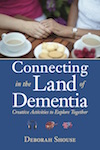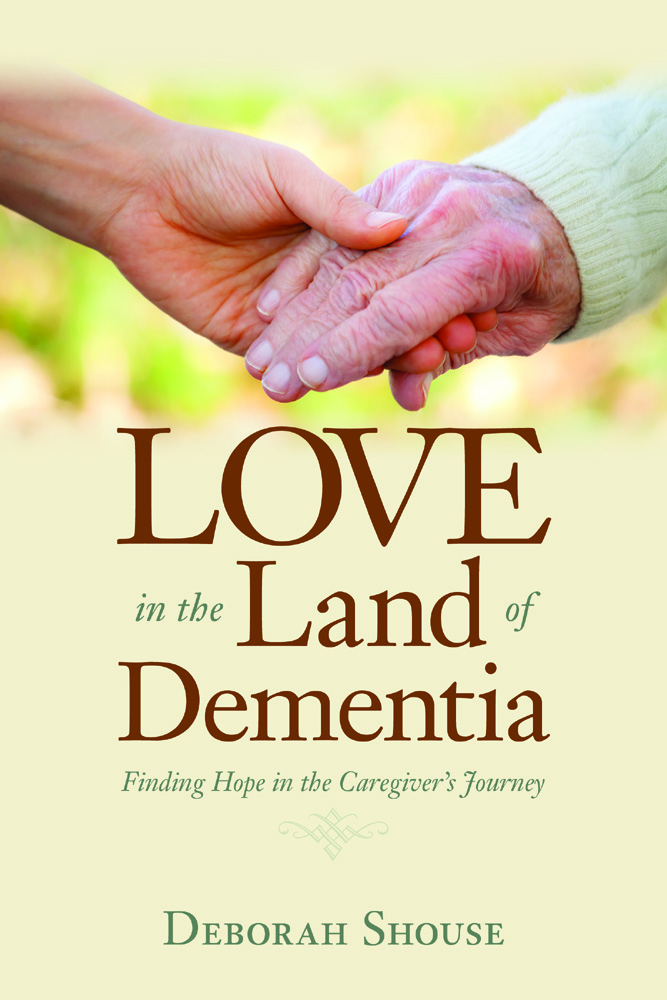Posts Tagged ‘living with purpose’
Using His Voice and His Skills: Mike Belleville’s Tips for Living Well with Dementia
“Here’s some medication,” the neurologist told Mike Belleville. “See you in six months.” The doctor stood up to leave, but Mike just sat there, exhausted from months of struggle and confusion, worn ragged from all the tests and consultations. For months, Mike, age 52, had been “hiding under a rock.” His mind wasn’t working right and he worried he’d make a mistake, so he withdrew from his busy life. Now, he was numbed by the diagnosis he’d just received; younger onset Alzheimer’s.
Those three words seemed insurmountable.
“My wife and I had no connection to support services and we had no idea what to do next,” Mike says. “We felt so alone.”
Without his job as a Senior Telecommunications Technician at Verizon, his community volunteer projects, and his hobby of photography, Mike sank into a depression. After several months, his wife found a program at their Alzheimer’s Association that focused on finding a purpose and living well with dementia.
“From meeting others who had the diagnosis, I realized, I can still enjoy, do, and learn,” Mike says. “But more importantly, I realized that I have a voice. I want to use that voice for as long as I can.”
Speaking Up
Even though he had no experience with public speaking, Mike plunged in and became an outspoken advocate, visiting Washington D.C., and speaking at a number of dementia forums.
“Somehow, I was comfortable discussing dementia,” he says. “Even when I was interviewed in front of 1300 people, I felt like I was sitting in a coffee shop, talking to a friend.”
He joined the advisory board of the Dementia Action Alliance and expanded his speaking and advocacy work.
Cooking Up New Skills
Mike was frustrated that he could no longer contribute financially to his household. So he searched for ways he could help around the house. He volunteered to do laundry and soon learned he did not “know when to fold ‘em.” Then he made a discovery: he could combine his desire to learn, his creative curiosity, his love of technology, and his desire to help through the joys of cooking.
Prior to dementia, hamburgers and hot dogs comprised Mike’s culinary repertoire: he could grill with the best of them.
“Thank goodness for Pinterest and YouTube,” Mike says. He searches for recipes on-line, then scans YouTube for a demonstration video, which he watches several times. He uses an App called Paprika, so he has the recipe in front of him. Then, Gordon Ramsey style, he lines up all his ingredients.
“Through trial and error, I learned to put away each ingredient after I added it in,” Mike says. “That way, nothing gets used more than once.”When his wife returns from work, they put the dish on the stove and cook the rest of the meal together.
“She’s very appreciative of my new talents and I’m happy to be exercising my brain and nourishing our family,” Mike says.
Putting Purpose to Technology
Early on, Mike volunteered at a local senior center, starting a technology group called, Mike’s Google Gals. Once a week, he helped people with their phones, tablets and computers. When he and his family moved, he volunteered to host a free Tech Corner on Dementia Action Alliance’s website, offering his problem solving skills as needed. He helps people get on line so they can participate in a vibrant virtual community.
“I get just as much out of this as I put into it,” Mike says. “The more I stay active, the better I am.”
Mike and his wife share an electronic calendar, so she can support him with his schedule. His vibrating smart watch offers reminders of meetings and appointments.
“Because I’m wearing the watch, I don’t have to worry about misplacing it and missing a text or an email,” Mike says.
Mike envisions home automation devices extending beyond moderating lights and temperature.
“I have an issue with anxiety,” Mike says. “I would like a wearable devise that automatically detects my anxiety. As I become more stressed, the device could turn on my TV, which would be tuned into a soothing video of my wife talking to me. Or it could turn on a calming musical playlist.”
Mike also envisions sensors that would alert his wife if he turns on the stove or walks out the front door. He would like to help develop these types of products.
Recipe for Living Well with Dementia
Mike views living with dementia as his new career.
“I’m using the same skills I honed in my earlier career,” he says.
His prescription for living well includes staying socially engaged, finding a purpose, and helping others.
At first, Mike saw his diagnosis as the end, but now he’s busy living. He has the Alzheimer’s logo tattooed on his arm with the motto, “Live life today.”


Using Business Acumen in Alzheimer’s Advocacy: Michael Ellenbogen
Most people would have been stressed out by the constantly changing technology, the large territory, and the escalating demands of working as a high-level data center manager. Michael Ellenbogen thrived on the challenges.
“I didn’t feel the stress; I loved constantly learning and I became the go-to-problem solving person in my organization,” he says.
By his mid-thirties, Michael had a wonderful wife and daughter, a nice house, a boat, and a rewarding and stimulating career.
Then, at age 39, he realized that something was wrong. He’d forget meetings, dashing in minutes late, claiming a crisis. He’d look at an employee and blank on her name. When people threw around familiar industry acronyms, Michael couldn’t remember what the letters stood for.
“Just part of everyday stress,” his colleagues assured him, when he mentioned these lapses.
But the aberrations were disturbing and Michael went to his doctor. “Stressed,” his doctor said.
Through the next years, Michael fervently sought answers but received only platitudes.
In 2003, when he was 45-years-old, he was terminated. He applied for another job, a high-level manager’s position. But the interviewer asked him a math question and Michael didn’t know the answer.
“I’d done budgets of millions but I couldn’t come up with the number,” Michael says. “Luckily, an old boss gave me a chance at a consulting job.”
Michael studiously took notes, trying to learn the job. He worked diligently, putting in grueling hours, but he wasn’t meeting his quota. And it was exhausting, trying to hide his problems from those working with him.
Again, he sought medical information. Finally after an MRI, a PET scan, and batteries of tests, Michael, then age 49, was diagnosed with Mild Cognitive Impairment/Alzheimer’s Disease.
“That moment changed my life,” Michael said.
Having a diagnosis brought some relief. But when he learned more about Alzheimer’s, he was initially devastated, understanding there was no cure. His natural resilience soon surfaced and he embraced the philosophy, “Don’t worry about something you can’t change.”
So often, the disease isolates people, but Michael is determined to stay active, engaged, and make a difference.
“People living with dementia need a purpose,” he says.
Michael’s purpose is strong and clear: he works long days, educating, connecting, and advocating. He serves on five advisory boards and regularly speaks out on radio and television. He’s testified in front of Congress and communicated with both Congress and the Senate. He’s working with AARP and helping a hospital become dementia-friendly.
“Many in our society think Alzheimer’s is a part of normal aging. But it’s a disease, not the norm and we need to treat dementia as fairly as we treat other diseases,” Michael says. “NIH contributes 18.7% to cancer, 9.9% to HIV and only 1.5% to Alzheimer’s. This is an injustice.”
What the business world lost, those living with dementia have gained. Michael is a hard-hitting, vocal, and determined, strategist, dedicated to improving the lives of those living with dementia. ###
How can you help Michael and others living with dementia?
Michael advises: “Mail a letter to senators and congressman, sharing the story of someone who has dementia, so they can understand the devastation factor behind this disease.”
Visit Michael’s website: www.MichaelEllenbogenMovement.com
Read his book: From the Corner Office to Alzheimer’s
Deborah Shouse is the author of Love in the Land of Dementia: Finding Hope in the Caregiver’s Journey.
